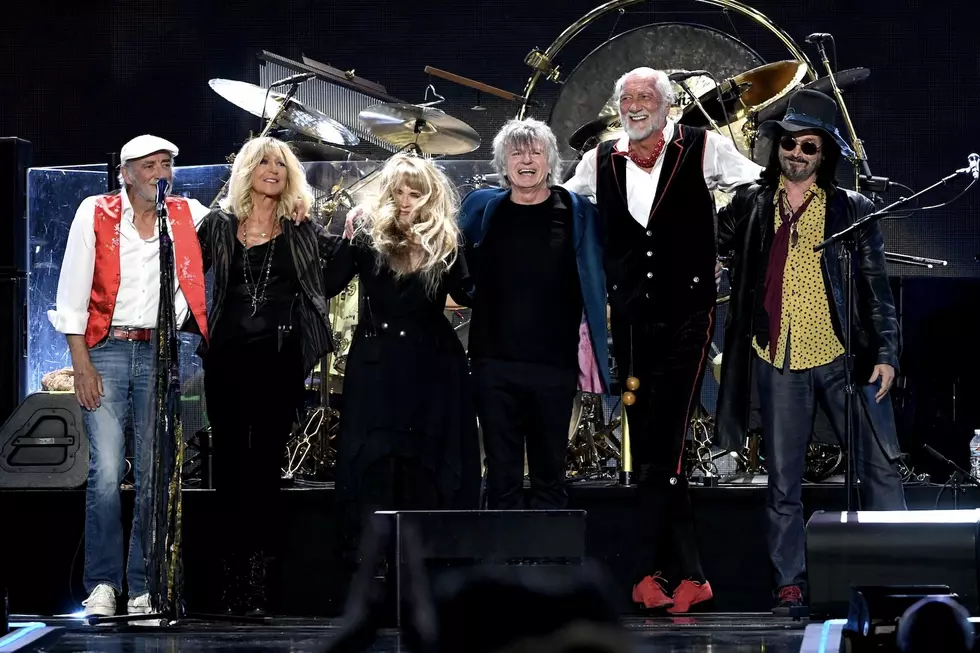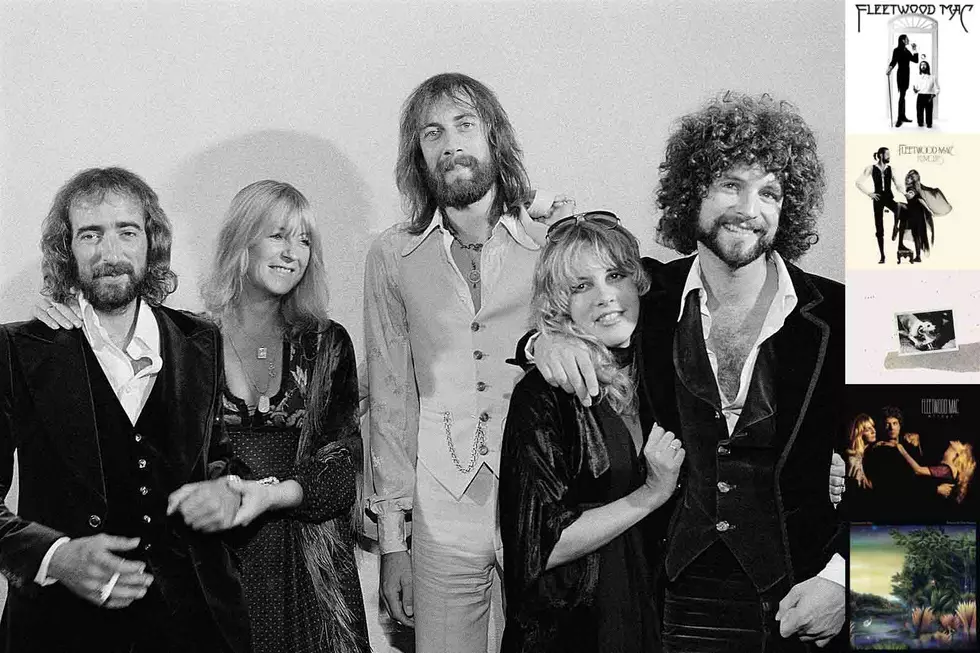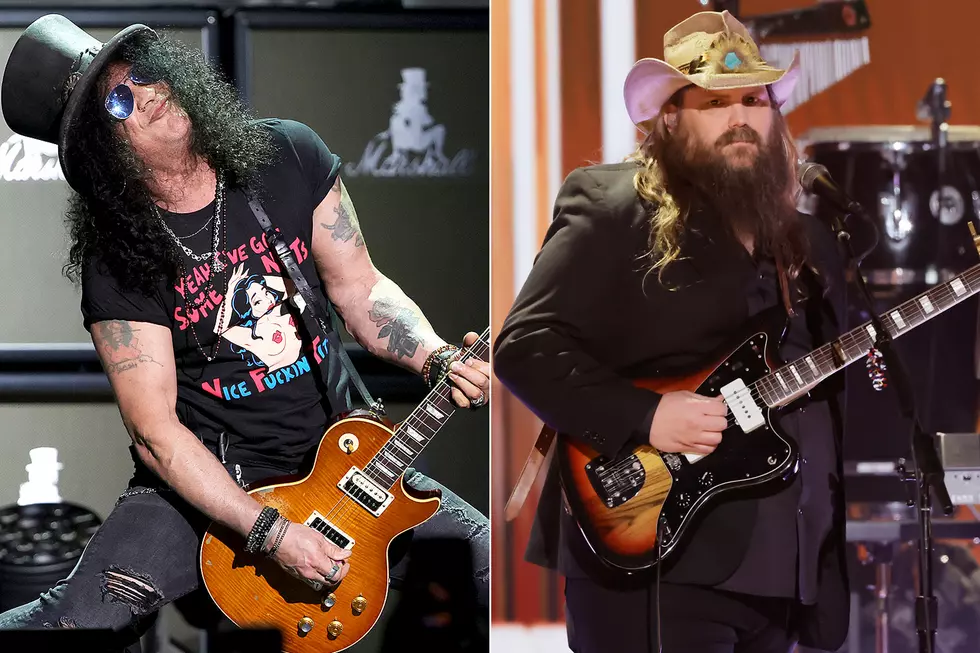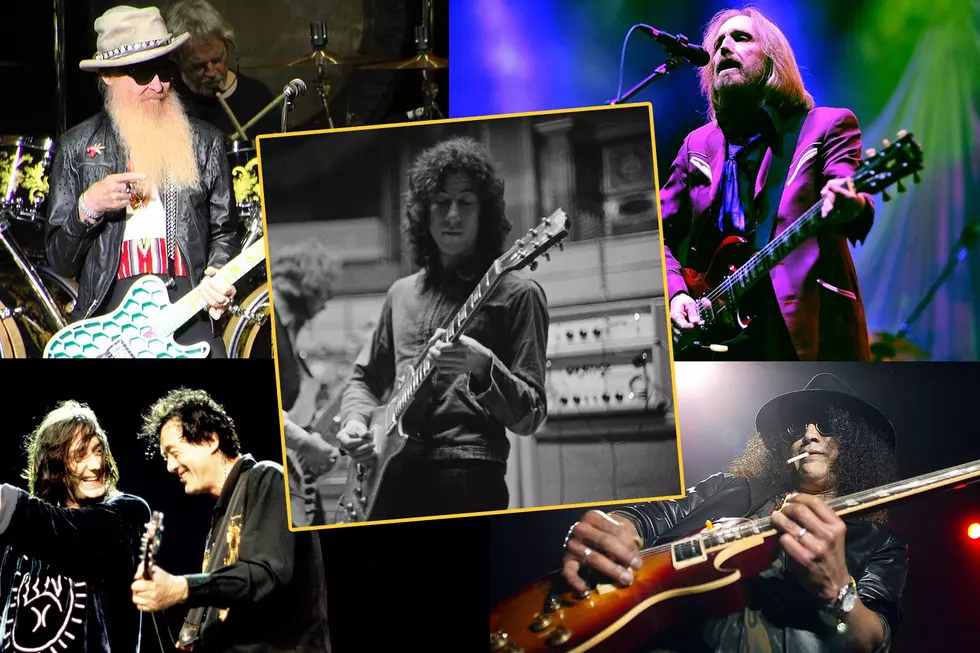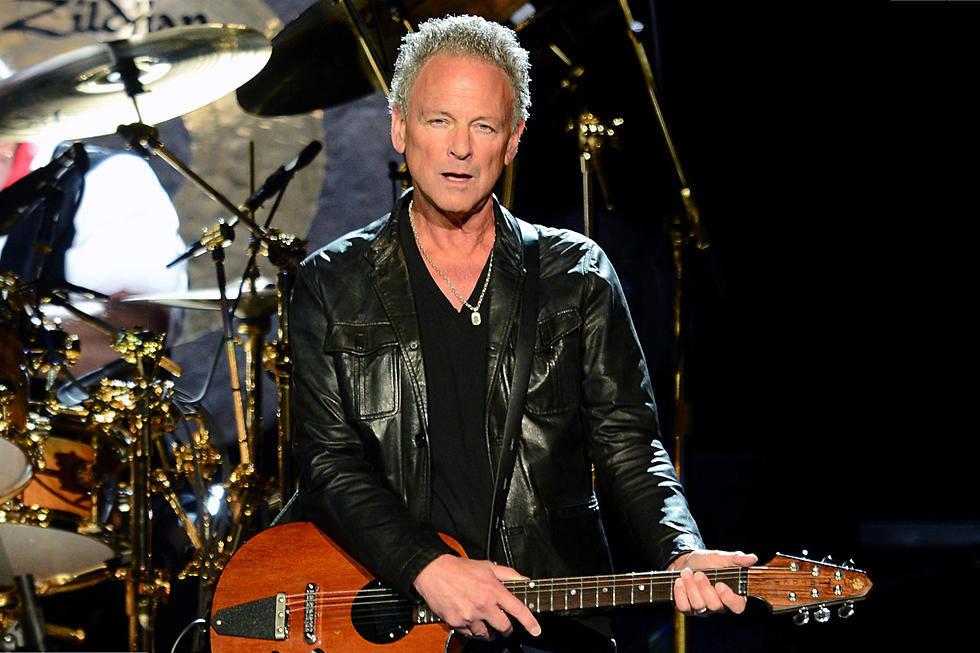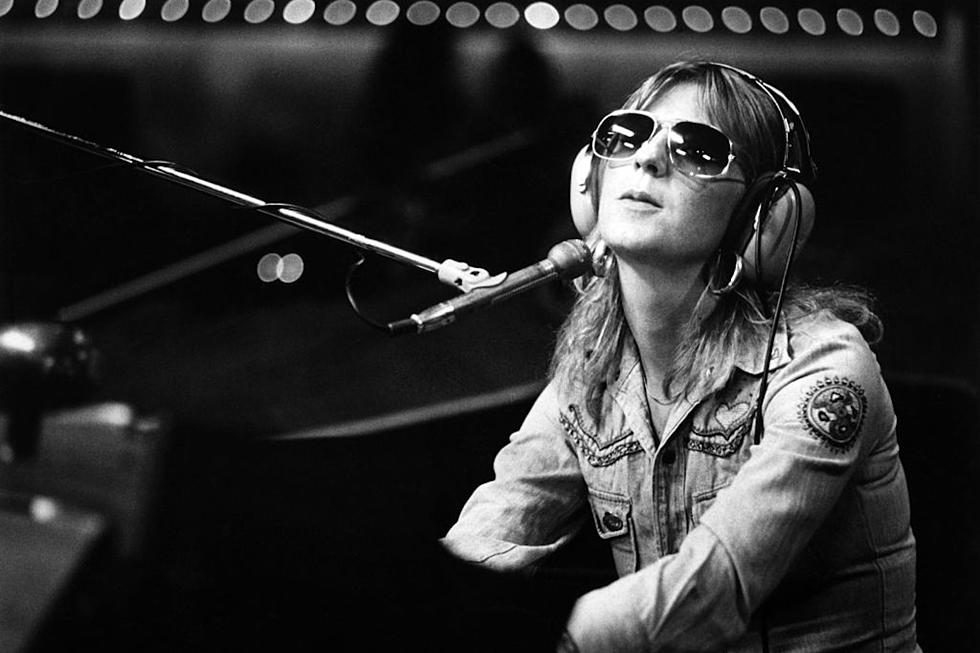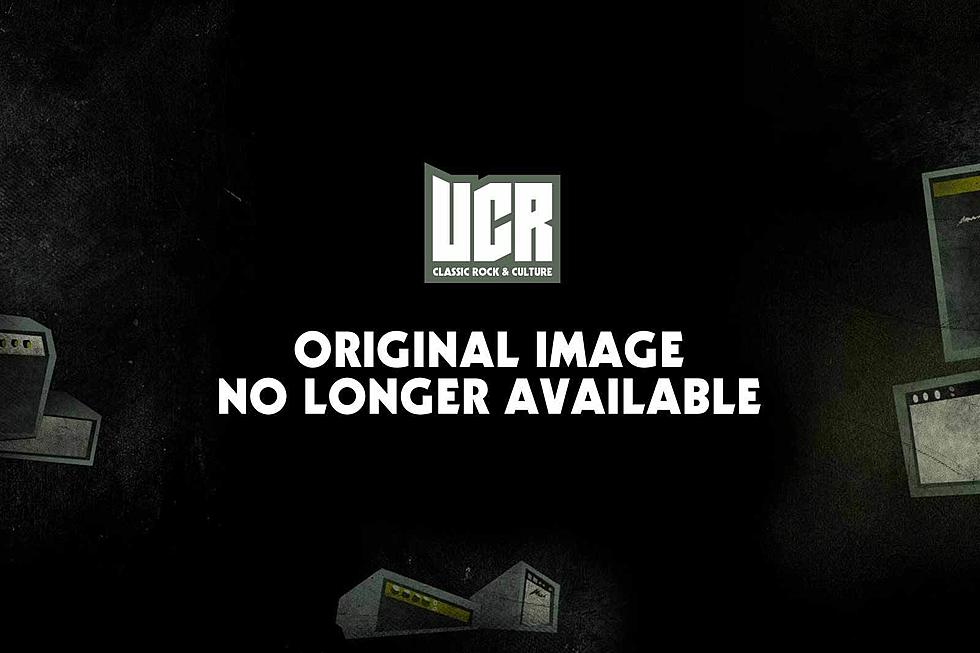
Top 10 Fleetwood Mac John McVie Songs
For just a moment, let's put all of Fleetwood Mac's soap opera drama behind us: the mounds of cocaine, the millions of records sold and even our beloved Stevie Nicks. Instead, how about we shift our focus to the anchor of the band and one half of the dynamic duo who keep things rolling, bassist John McVie. Along with drummer Mick Fleetwood, he comprises one of the most solid rhythm sections in the history of rock music. The heart of this legendary band beats steady because of John McVie, so we have chosen ten songs where his presence is front and center.
- 10
'World Turning'
From: 'Fleetwood Mac' (1975)Co-written by Christin McVie and Lindsey Buckingham, 'World Turning' is one of the many highlights on Fleetwood Mac's self-titled 1975 LP. The song adopts a somewhat country blues type riff and feel as Buckingham and McVie switch off on lead vocals. McVie is up to his usual role as the ultimate anchor of things on the song, especially on live versions where he and Mick Fleetwood get a real train-like rhythm going on.
- 9
'Brown Eyes'
From: 'Tusk' (1979)Somewhat hidden on the 'Tusk' album, 'Brown Eyes' is easily one of Christine McVie's most beautiful songs. A simple and sweet melody sits atop the electric piano and bass that really are the key to the song. A simple but effective drum part and some atmospheric guitar lines really add to the color as well. Though not credited on the album, the guitar is playing is actually done by original band leader, Peter Green. The hypnotic groove of the song could have gone on forever.
- 8
'Rattlesnake Shake'
From 'Then Play On' (1969)Another killer form the pen of Peter Green, 'Rattlesnake Shake' is first class blues raunch that the early Fleetwood Mac excelled at, and one of many highlights on the band's 1969 LP 'Then Play On.' Kicking off with the rousing line "Baby if you've got to rock, I've got to be your rocking horse," 'Rattlesnake Shake' cooks a smoking, growling blues groove. McVie's bass slithers through as Green's biting guitar cuts through the haze. In concert, the three minute song would often become a lengthy jam as the band would stretch the number out and really let loose.
- 7
'Bare Trees'
From 'Bare Trees' (1972)The forgotten era of Fleetwood Mac -- those years between the departure of Peter Green and the arrival of Buckingham & Nicks -- are full of plenty of great music. The 1972 LP 'Bare Trees' is a great example of what you could call a 'lost classic.' The second LP to feature Bob Welch, 'Bare Trees' contains many wonderful Mac moments, especially the title cut. 'Written by Danny Kirwin, the song has a very 'folk rock' feel to it while underneath, as McVie provides a very driving bass line.
- 6
'Sisters Of The Moon'
From: 'Tusk' (1979)'Sisters Of The Moon' is Stevie Nicks' shining moment on the 'Tusk' LP. It's a dark and brooding song that captures the essence of Nicks style perfectly. Both lyrically and musically, it easily ranks up there with her best songs. The interplay between Lindsey Buckingham, Mick Fleetwood and our man of the hour here John McVie is as good as it gets.
- 5
'The Green Manalishi'
From: 'Then Play On' (1969)It's probably safe to say that many, if not most, American listeners first heard this song via the Judas Priest version from their 1978 LP 'Hell Bent For Leather,' but despite the metal gods great version, they got nothing on the original. This eerie and haunting blues is drenched in an acidic haze fueled by Peter Green's LSD indulgences at the time. The band plays a gritty groove while Green howls at the moon. This was to be his last stand with the Mac, and what a way to go out! Once again, Mick Fleetwood and John McVie lock arms and hold down the fort. A stunningly brilliant record from start to finish.
- 4
'I'm So Afraid'
From: 'Fleetwood Mac Live' (1980)One of Lindsey Buckingham's most hauntingly aching songs, 'I'm So Afraid' remains of of his most visceral guitar moments. The slow groove of the rhythm section provides the essential framework for the howling guitar and desperate vocals that sell the song, but the kindred spirit pumping bass and drums of McVie and Fleetwood are what drives this baby home. A live staple of Fleetwood Mac shows since its introduction in 1975, 'I'm So Afraid' is still always a highlight of any Mac (or Buckingham solo) concert.
- 3
'Oh Well'
From 'Then Play On' (1969)You want a first class bass riff? You got it! Written by original band leader Green, 'Oh Well' has one of the most dynamic guitar riffs ever, while John McVie takes the song all the way home with his anchoring bass. The song was originally divided into Pt.1 and Pt. 2, with the second half being a more mellow affair. The song has stayed with the band for decades and the intense, stripped down live version from the 1980 'Live' album is probably the more known version to most at this point.
- 2
'Tusk'
From 'Tusk' (1979)After the gargantuan success of 'Rumours,' what were the Mac to do? Simple, put Buckingham firmly in the driver's seat and let him draw up the maps. Though nowhere near as relentlessly polished as it's predecessor, 'Tusk' was an artistic triumph that still shines brighter than it's own mother's sun. Nowhere is the startling aspect of the new material more evident than on the title track. Released as a single preceding the LP, its jarring and unconventional style led to a lot of puzzled looks and confused ears. The tribal beat sets the mood as Buckingham's haunting vocals and guitar, along with McVie's slithering bass moves this beast along. Throw in the USC Marching Band and you've got a surprise hit.
- 1
'The Chain'
From: 'Rumours' (1977)From the locked groove McVie and Mick Fleetwod land in to commandeer this Mac classic, to the signature bass riff that propels the ending of the track, McVie outdoes himself on 'The Chain.' The song that kicked off side two of that little LP called 'Rumours,' was a very collaborative effort, co-written by the entire band, and has remained a radio staple since its release.It's one of the few songs not to be release as a single from that multi-platinum LP. The ending bass riff section of the song was used as the theme for the BBC show 'Grand Prix' for nearly twenty years.
More From Ultimate Classic Rock
